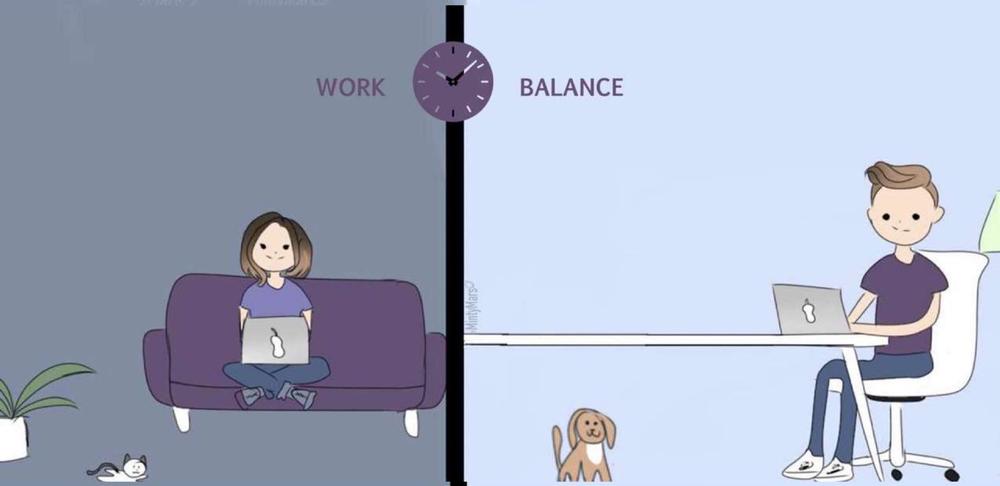Self-care is more than just indulging in small pleasures; it is an essential act of self-preservation. Self-care is about living a more balanced life and it takes real effort to practice it effectively. In the professional world, regardless what our jobs look like, we need to make sure we meet all of our needs first, in order to support others. With the pandemic, we find ourselves working with a general increased level of stress and worry. This can have adverse impact on our professional life; including our motivation, rumination and procrastination, stress and burn out, communications and relationships with colleagues and superiors, financial worry, and balancing workload. Emphasis on professional self-care is especially important today.
Please use the following as reference and you can dip in and out of any of the sections that apply to you. The resources also include activities and suggestions you can implement on your own to help with your professional self-care.
Stress and Burn out
“Burnout is our body’s way of telling us that this pace you’re keeping isn’t working and something needs to change”
During this strange time, many of us may take refuge in our work. Initially, this may work until our bodies and minds reach exhaustion. Burnout is our body’s way of telling us that this pace you’re keeping isn’t working and something needs to change. Since 2019 the World Health Organisation (WHO) has announced that work-related burn out is a legitimate syndrome, across all age groups. Burnout is the result of prolonged or chronic work stress that has not been effectively addressed. While a small amount of stress is useful to remain productive and engaged with work, burn out refers to stress levels that become unmanageable, which then impacts your mental and physical well-being. Some of the symptoms that could indicate burnout include but are not limited to experiencing insomnia, interrupted sleep, irritability, low moods, headaches and nausea. When it comes to work the indicators of experiencing burnout include low motivation and creativity, completing any tasks feels overwhelming, outlook of job becomes mainly negative, and making more mistakes than normally. Some of the current difficulties, include staying at home or worrying about the Covid-19 outbreak, struggling with relationships or loneliness, experiencing financial difficulties and/or risk of redundancy, dealing with physical or mental difficulty, and reliance of drug or alcohol, are all factors that could increase risk of stress and burnout. One way to manage risk of burnout is to know your red flags and address them.
The following tips are a guide on how to remedy the feeling of stress and burn out:
Slow down
As tempting as this may be to dive into all these tasks we may have put off for a long time, it is important we slow down. One of the ways to combat burnout is to organize your time, goals and tasks realistically, and avoid anything unnecessary. Learn to say no when you feel you already have a lot going on. Before our busy day starts, spend some time planning your breaks. In those breaks, make sure you break away from your screen and get up from our chair. You can walk around your environment, focus on your breathing or take a mindful moment (i.e. staring out your window, enjoying a cup of tea mindfully). If tasks start to feel overwhelming, try to break them into smaller manageable amounts, and take a break in between to reward yourself. During your lunch hour, you can recreate your lunch breaks by planning to video chat with your colleagues for lunch. At the end of the day, you can make some time to reflect on your achievements; what went well and recognise your successes and the things you are grateful for.
Priorities your well-being:
Learning to prioritise your well-being is especially important during this uncertain time. Do not let working from home fool you into thinking taking some time off is a bad idea. Take some annual leave or a mental health day to practice some personal self-care. We also may be tempted to work over the clock or over the weekends, and this carries many risks to our well-being. Since we do not have a literal or physical divider right now between our personal life and our professional life, it is very important to create that ourselves by maintain small but essential practices. Routine is your best friend now, to create a clear boundary between your professional and personal life. One of the ways to maintain healthy boundaries is maintaining our regular morning routine (washing, getting out of our sleeping clothes and into (comfortable) work clothes etc.), designating one area at home as your work space instead of working off the sofa or bed, putting all work-related things away when you are off the clock, turning off work phones after hours, and working only within your designated work hours.
Avoidance and Procrastination
“Procrastination is a very common type of avoidance coping.”
One of the ways people tend to cope with difficult thoughts and emotions getting triggered is by avoidance. Procrastination is a very common type of avoidance coping. Procrastination may also be related to distractions, trivialisation, denial, laziness, and external blaming. If you find yourself procrastinating, then try to pick out your most procrastinated activity or task, and commit doing it for thirty minutes. During the thirty minutes, pay attention to what comes up for you and briefly note down those thoughts and feelings. You might realise that this task may be triggering some stress or anxiety, or feelings such as being unsupported or powerlessness. The issue with procrastination is that it may reduce the difficult feelings temporarily, but it will increase your problems with the overall emotions. Soon the procrastination will also become a stress generating, which means avoidance of activities will start creating real life consequences and potentially add more stressors, creating an endless loop of stressful events and avoidance.
Behavioural activation
According to Cognitive Behavioural Therapy (CBT), changing one’s patterns helps individual’s better approach their procrastinated tasks and activities. It is important to be aware of the procrastination cycle, in order to break out of it. Monitor how you spend your day and see what parts are not aligned with your goals and values, and target change in those areas. At the start of your day, create a to do list and assign priority to each task, then number the order you want to accomplish them. Remember to tick them off when they are done, so you can acknowledge your accomplishment and reward yourself for a completed job. Another approach is focused on setting a timer for twenty minutes to focus on each task, when the timer rings, you can get a break for five minutes (e.g. Be Focused App).
Stimulus Control
According to CBT, procrastination behaviour is related to impulsiveness and the engagement in activities that give us immediate rewards. As such controlling our environment and situational factors can help reduce the number of obstacles in engaging in activities that promote immediate rewards. As such, if you find yourself particularly procrastinating when your personal mobile is beside you, then you might think about putting it in another room. By controlling your environment, you can help maintain or improve your motivation.
Professional uncertainty
“Our discomfort with uncertainty is an inheritance of our survival instincts.”
The Covid-19 is defined by uncertainty. So much about coronavirus is out of our control. Not just the virus itself, but the impact it may leave on our lives, including our socializing, travel, finances, and jobs. Our discomfort with uncertainty is an inheritance of our survival instincts. So, embracing uncertainty may be counter to our evolutionary instincts. For decades people have looked for many interventions to overcome or eliminate the sense of uncertainty such as gaining knowledge to increase certainty. However, in this circumstance, it is nearly impossible, because uncertainty is everywhere. Maybe this pandemic is an opportunity for all of us to learn to tolerate and learn from, and practice uncertainty. But, how do we embrace uncertainty?
Acknowledge the uncertainty
Acknowledging the uncertainties that we have no control over is a crucial step. Embracing flexibility helps us accept that these strange times are filled with uncertainties. We can start confronting uncertainty, and build it into our decision-making, in other words we begin reframing. The aim is to focus on the things you can control and working with that. Write down what is troubling you and what can you do to improve the situation. Remembering your strengths can give you more confidence in times of uncertainty. Try to think of all the unpredicted difficult times you previously overcame. Ask yourself, what did you do to cope? Were you able to handle the negative outcome? What does this tell you about your ability to cope with negative outcomes in the future? The idea is to remind yourself that you are resilient and even if things do not go as planned, you still have the capability to deal with them.

